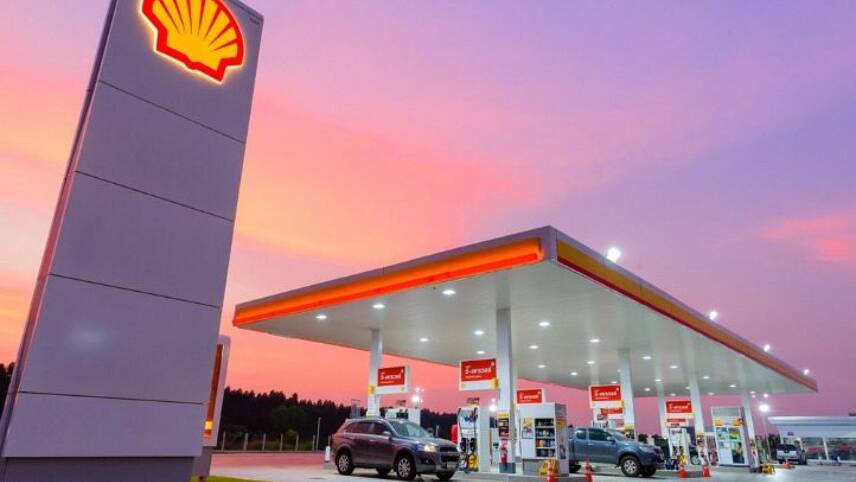Register for free and continue reading
Join our growing army of changemakers and get unlimited access to our premium content

To assist with UK forestry restoration
Starting next Thursday (17 October), customers purchasing fuel Shell-branded service stations will be able to offset the emissions associated with the purchase at no extra cost.
Drivers will automatically partake in an offsetting programme if they scan a Shell Go+ app or car after purchasing fuel. Approximately 20% of the fuel sold by Shell in the UK goes to customers registered with a Go+ card. Customers can freely sign up to the initiative.
“Switching to an electric vehicle is the best way for drivers to reduce their CO2 footprints and they can now charge on a growing number of our UK forecourts with 100% renewable electricity,” Shell’s UK county chair Sinead Lynch said.
“But today the majority of people still use petrol and diesel. We can help them address the impact of their emissions by offsetting their fuel purchases, starting now.”
The offsetting option will be available at more than 1,000 Shell-branded service stations in the UK, and Shell has committed £10m to be spent over the next 12 months to purchase carbon credits from certified projects that protect and regenerate forests.
The reward programme is available to join free of charge. Customers will have access to a credit statement to find out how much has been offset. The launch follows the rollout of the initiative in the Netherlands, which was launched in April 2019. Currently, 20% of Shell customers in the Netherlands are now offsetting their travel emissions through the scheme.
Shell will also rollout an offsetting option for business fleets.
In the UK, Shell is now offering 100% renewable energy tariffs. One year after Shell acquired First Utility in 2018, the rebranded Shell Energy Retail has switched more than 700,000 homes in Britain to 100% renewable electricity.
The company has invested heavily in solar firms and electric car infrastructure companies in recent times as more green technologies come to the market, and has also moved to install rapid electric vehicle (EV) charging points and hydrogen cell refuelling facilities at some of its petrol station forecourts.
Global investments
Shell is prioritising carbon credits that benefit restoration projects in the UK. The Overkirkhope Project in the Scottish borders and the Longwood Project in Cumbria, both verified by the UK Woodland Carbon Code, will benefit from the offset project.
But, as the UK market for carbon credits is small, Shell will also purchase carbon credits from projects in Peru, Indonesia and the US.
To assist with UK forestry restoration, Shell is also launching a partnership with Forestry and Land Scotland, the Scottish government agency that manages and protects 640,000 hectares of Scotland’s forests and land.
Over the next five years, Shell will invest approximately £5m to plant and regenerate around one million trees.
The announcement has been described as “tokenistic” by green campaigners Friends of the Earth.
“Doubling tree cover needs to form a key part of the UK’s climate strategy, but it’s essential that it’s coupled with a huge reduction in emissions in the first place,” Emi Murphy, trees campaigner at Friends of the Earth, said. “Tokenistic offsetting schemes like this are meaningless if the company doesn’t reduce the huge volumes of fossil fuel burning that it’s responsible for.”
Globally, Shell has committed $300m over the next three years on conservation and carbon offset projects in a bid to reduce its carbon footprint by up to 3%.
Despite the $300m commitment, Shell is facing legal actions over “slow” progress in reducing its emissions, improving its human rights protections and eliminating oil spills, with green campaign group Friends of the Earth’s (FoTE) Netherlands arm claiming its current business model is “wrecking the climate”.
The energy firm’s overarching goal is halving the carbon footprint of its energy projects by 2050. Since setting this target, Shell pledged to set shorter-term targets every three to five years, starting in 2020. Effective as of 1 January 2019, the first of these short-term commitments is to deliver a 2-3% reduction of the company’s overall carbon footprint against a 2016 baseline.
While the green investments from Shell, and other oil and gas firms, are welcome, they represent little in terms of the overall expenditure of the industry. Global oil and gas firms have collectively invested just 1.3% of their combined capital expenditure (CAPEX) into low-carbon technologies and projects since the start of 2018.
In related news, airline British Airways has announced that it will offset emissions from all domestic UK flights.
The company will achieve this mostly through offsetting and investing in solar and reforestation projects, but also by spending £330m on cleaner fuel and replacing older aircraft with more efficient planes. BA operates up to 75 UK domestic flights a day.
Matt Mace


Please login or Register to leave a comment.